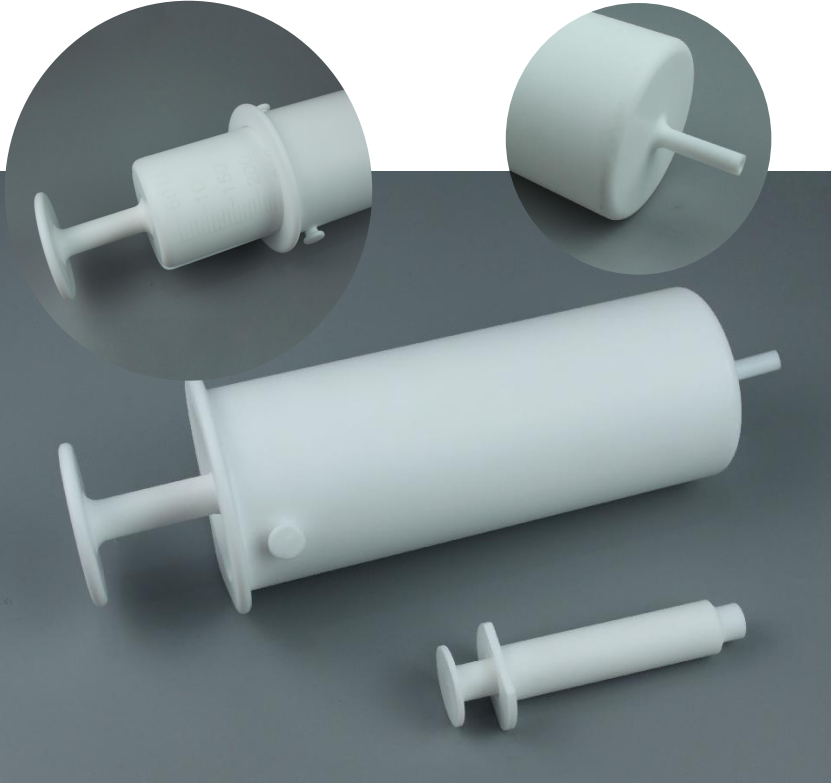PTFE Syringe Sampling
PTFE Syringe Sampling
Description

PTFE syringe sampling refers to the use of syringes made of PTFE (polytetrafluoroethylene) material to collect and transfer liquid samples in laboratory applications. PTFE syringes are known for their high chemical resistance, thermal stability, and non-stick properties, which make them ideal for handling and transferring a wide range of samples, including those that are corrosive, viscous, or sensitive to contamination.
PTFE syringes are available in various sizes and configurations, depending on the specific application and the volume of the sample being collected. They are typically designed with a plunger that can be depressed to draw the sample into the syringe, and a needle or Luer-lock fitting that allows for easy transfer of the sample to other laboratory equipment, such as vials, reaction vessels, or chromatography columns.
PTFE syringe sampling is commonly used in a variety of laboratory applications, including environmental monitoring, pharmaceutical and biotechnology research, and chemical analysis. PTFE syringes are often used in conjunction with other laboratory equipment, such as filtration systems or HPLC (high-performance liquid chromatography) systems, to facilitate sample preparation and analysis.
When using PTFE syringes for sampling, it is important to follow appropriate safety procedures, such as wearing appropriate personal protective equipment and avoiding contact with sharp or abrasive materials that can damage the syringe. It is also important to properly clean and maintain the syringe to prevent contamination and ensure accurate results.
1.white appearance.
2.chemical resistant.
3.High temperature resistance: use temperature -200~+250 degree.
4.non-leachable, ultra low trace elements
5.custom-made according to your artwork
6.can add measuring marking
Order Form
About Semiconductor Electronics
SEMI EL project is a global supplier of materials, equipment, spare parts and supplies for the semiconductor industry.
Get In Touch
Email: info@semi-el.com

